
Many of us love our smaller four-legged brothers. But cats and cats have always been a separate column in maritime history. From time immemorial, they are frequent guests of boats and even crew members. Today we will tell you a little about the history of cats on ships and what you need to know before getting a cat on board.
A couple from Baltimore, Maryland, Ani and Paul, after moving, decided to buy a sailboat. They searched for a long time, could not decide and in the end the search led them to Beneteau Oceanis 473 2002 release. Why is this married couple in the story about cats, you ask? Thanks to their story, we will be able to better understand the topic with a living example.
History of the issueCats have been companions of people for a long time. Thanks to their innate dislike (or, on the contrary, excessive love) for rodents, sailors also fell in love with them. Over time, the concept appeared - a ship's cat.
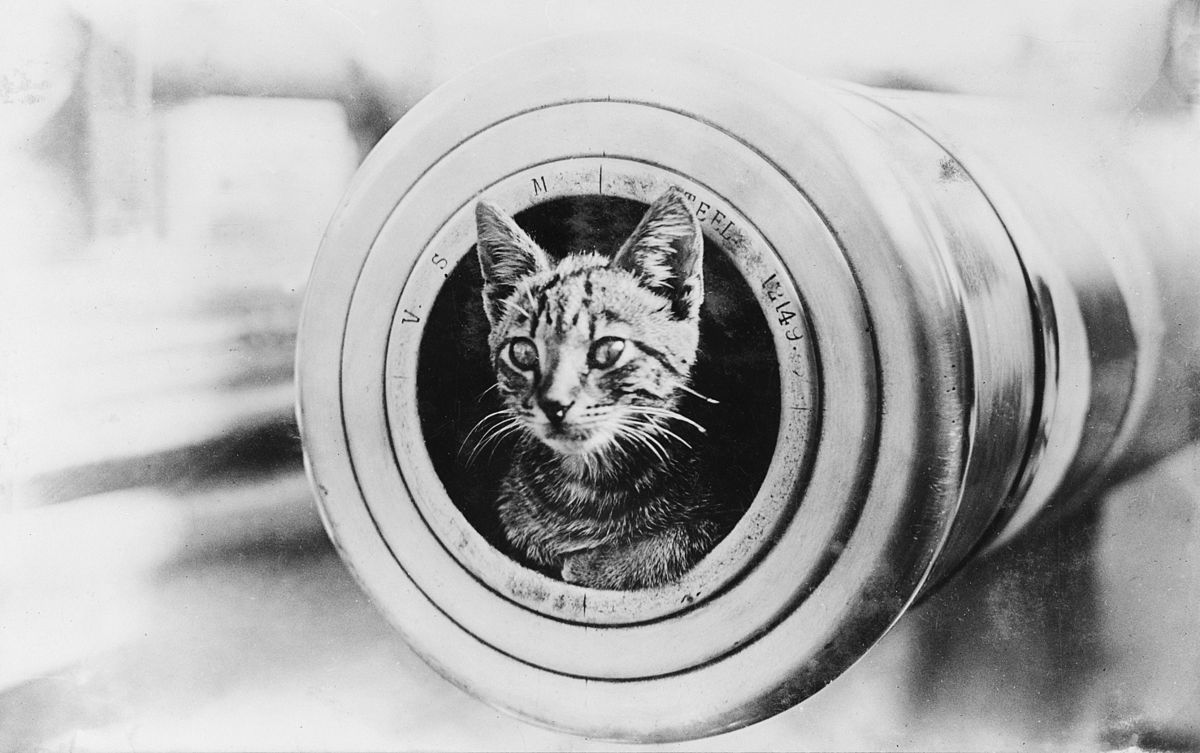
This is a cat that lives on the ship, goes on voyages and is even actually a member of the crew. As it already became clear, initially they took cats with them due to the fact that they were happy to destroy rodents, which could spoil everything - from provisions to cables.

Some teams loved their cats so much that they created all possible conditions for their comfortable and happy life. In response, the cats not only helped fight off parasites, but also created a more comfortable and relaxed atmosphere. This helped sailors cope with stress.
Blackie and OscarThere are many stories about these cats. So, Blackie's cat served on the battleship Prince of Wales. During World War II, he became famous for being photographed with British Prime Minister Winston Churchill. He arrived at the Argentia British naval base in Newfoundland, Canada in August 1941 for a secret meeting with US President Franklin Roosevelt.
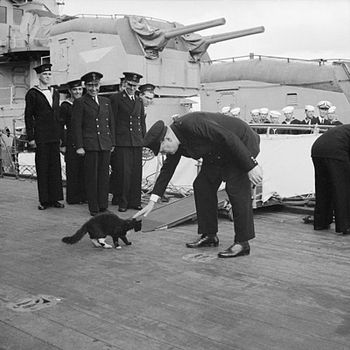
As a result of the meeting, the Atlantic Charter was signed. Just as Churchill was about to disembark the Prince of Wales and cross the bridge to the American destroyer McDougal, Blackie appeared. Churchill stopped to say goodbye to the cat.
This moment was captured in a photograph and made the front pages of newspapers. Blackie was renamed in honor of this visit and began to bear the name "Churchill".
The story of Oscar the cat is no less impressive. The cat lived on the German battleship Bismarck, which was sunk on 27 May 1941 by the British fleet and aircraft.

Of the more than 2,200 crew members, 116 survived, and Oscar was taken aboard the British destroyer Kazak. On October 24 of the same year, "Cossack" was torpedoed, as a result of the torpedo attack 159 people died, but Oscar survived again and was sent to Gibraltar.
There he became the mascot of the Ark Royal aircraft carrier, but this ship also sank in November 1941 after a torpedo attack. After these three torpedo attacks, they decided to send Oscar to land and jokingly nicknamed the Unsinkable Sam. He was appointed as a mouse-catcher at the residence of the Governor-General of Gibraltar. Subsequently Unsinkable Sam returned to the UK and settled in the "Home for the sailors". His portrait is in the Greenwich National Maritime Museum.
Reveler and GypsyAfter Ani learned these stories, she decided that it would be a good idea to put two of her cats, Reveler and Gypsy, on the boat. Alas, everything that she found on the Internet for the request "Caring for cats on board" - just a grain of information. But there was no such problem with the dogs. Whole articles have been written about them.
"I was already thinking that it might be worth getting a dog!" - laughs Ani. “Of course, these are all jokes. I will not abandon my beloved cats. But there is still a problem - there is not much information on the Internet about cats on board. "

Then a pandemic began. Ani and Paul worked from home - this was not new for them, since they had worked in this mode before. The only place where they could go and rest was a newly acquired yacht. It was an island of security and freedom in a new world.
One day, they thought it would be a good idea to try taking the cats on board. Literally for the weekend.
The cat is on deck for the first time! "We were worried!" - Anni and Paul declared unanimously. “Will the cats panic? Maybe they will meow all night? What if they get out of the cabin, go for a walk on the deck and fall into the water? Revelers had certain heart problems, won't he get worse? Then a simple plan was ripe. If they absolutely don't like it, we'll just take them home the next morning. "
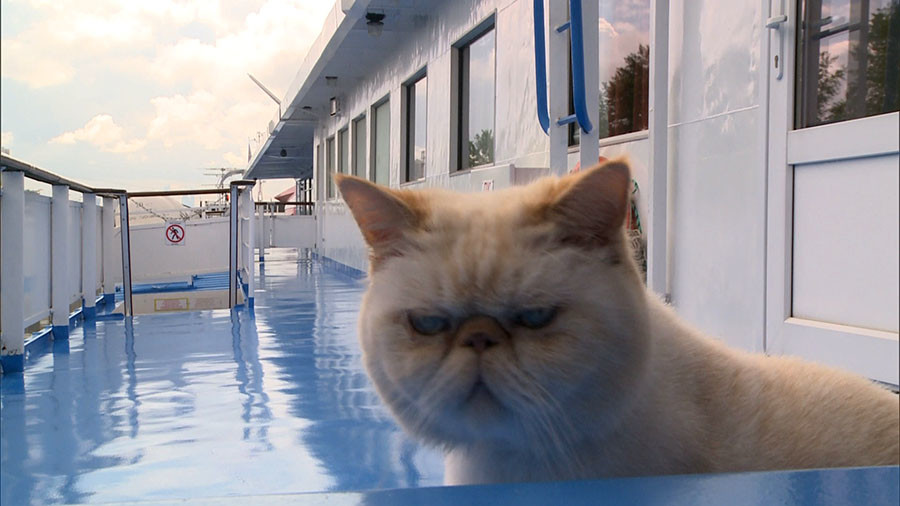
The cats meowed in the car for the first 15 minutes of the journey. But they also did when they were taken to the vet. They were most nervous when Ani and Paul passed under the overpass.
As soon as the owners entered the boat, they released their cats and closed the doors. Imagine the relief of the couple when the cats did not start running around like crazy around the cabin. Instead, they quietly began to do what cats usually do on such occasions. Sniff and explore new territories.
After the exploration of the new home was completed, the cats decided to take a break. Gypsy flopped down on the table, and Reveler settled into a V-shaped berth. At that moment, it became clear to the couple that no problems were expected for the rest of the weekend.
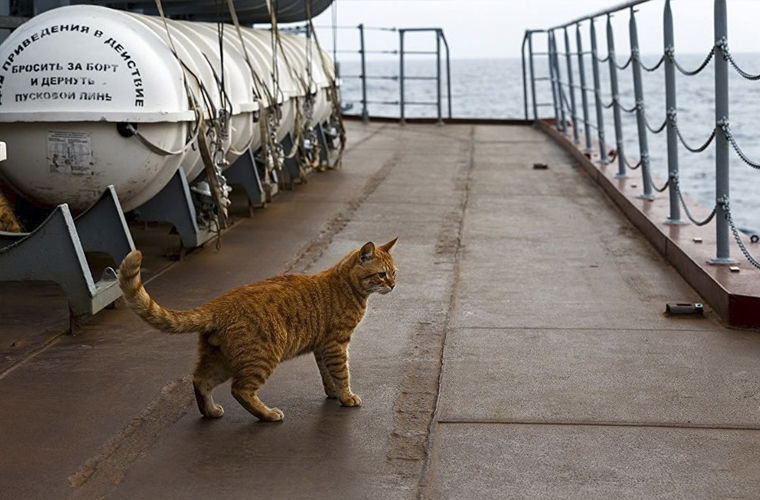
Later that weekend, Eni thought it would be logical to stay with the cats on the yacht. Why carry them back and forth and make them nervous?
Paul had to return to DC to check the office, while Ani, Gypsy, and Reveler remained aboard. So, the decision was made - until the end of summer and the beginning of autumn, our cats will be on the yacht.
What's next?After that, everyone quickly entered the routine. Paul will travel to Baltimore on Thursday and then return to DC on Monday (along with a basket full of laundry from home). Ann works remotely.
The cats, meanwhile, were enjoying life. They especially liked to watch blue herons, seagulls, ducks and loons from the boat windows.
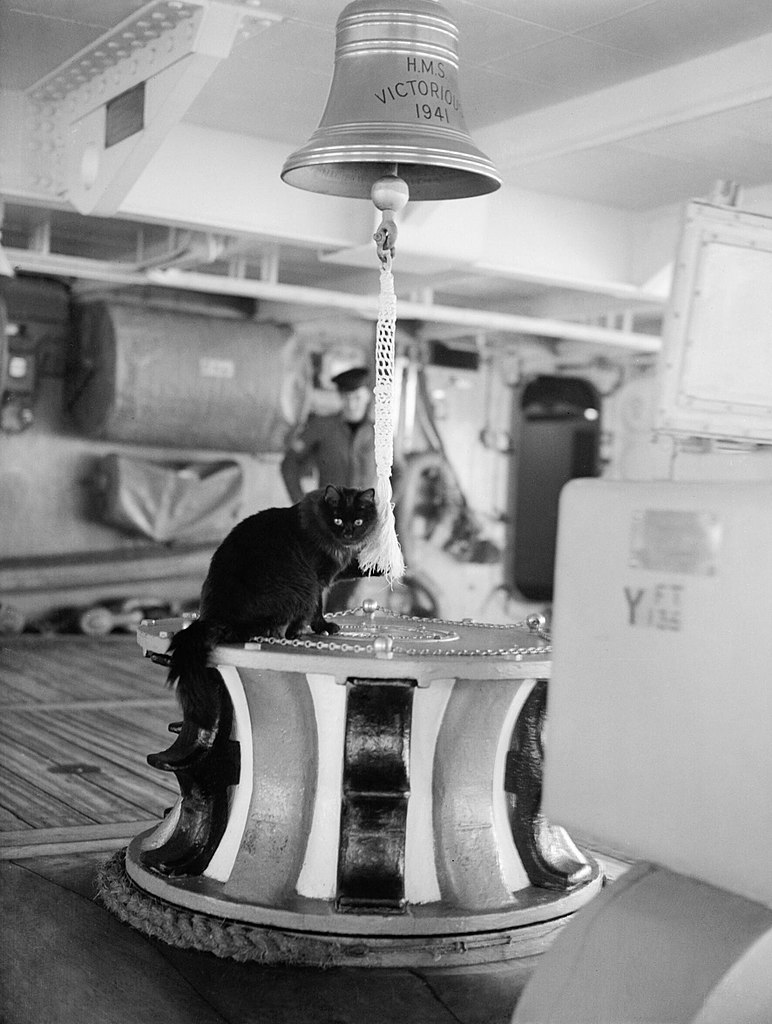
Large overhead hatches in the cabin created ample sunbathing space. Cats have never ceased to marvel at the sound of raindrops hitting decks during the inevitable summer storms we experience in the Mid Atlantic. When the tide came and the boat swayed back and forth, they still felt uncomfortable, but every week it became easier and easier.
Ani and Paul have not yet released Gypsy and Reveler on deck. But like house cats, they don't seem to mind being in the salon. Next spring, they hope to teach them how to better adapt to the sound of the engine running and the feeling of the boat lurching under sail.
The plan is to start with quick cruises around the inner harbor. By the way, Eni and Paul are sure that cats will become real yachtsmen!
Tips for living on board with catsNow let's talk about the main recommendations, if you decide to follow the path of our ancestors and get a ship cat, then here are some simple tips. We assure you they will make your life easier.
1. Bring the litter box on board one week before the scheduled delivery of the cats. Preferably with a filler that is not very loose or easy to spill out.
2. Clay cat litter is not your friend. The moisture will cause it to stick together, and eventually the entire interior will be in marks from small paws. Ani and Paul opted for a walnut-based bedding that didn't stick to their paws as much.
3. If the material of your salon is delicate enough and can easily be scratched from the claws of cats, then take action. Or twist over the salon, or, which is easier, teach the cat to sleep in a strictly designated place.
4. Bring familiar toys, blankets, etc. on board in advance. So cats may be in a new place, but there will be familiar smells and things nearby. This will reduce their stress levels.
5. If you intend to release them on deck, buy a leash and / or a small life jacket.
6. The first few days with them on board, help calm their nerves. Be there.
7. Be patient. They can hurt themselves or get seasick. But in the end it will be worth it!
Source